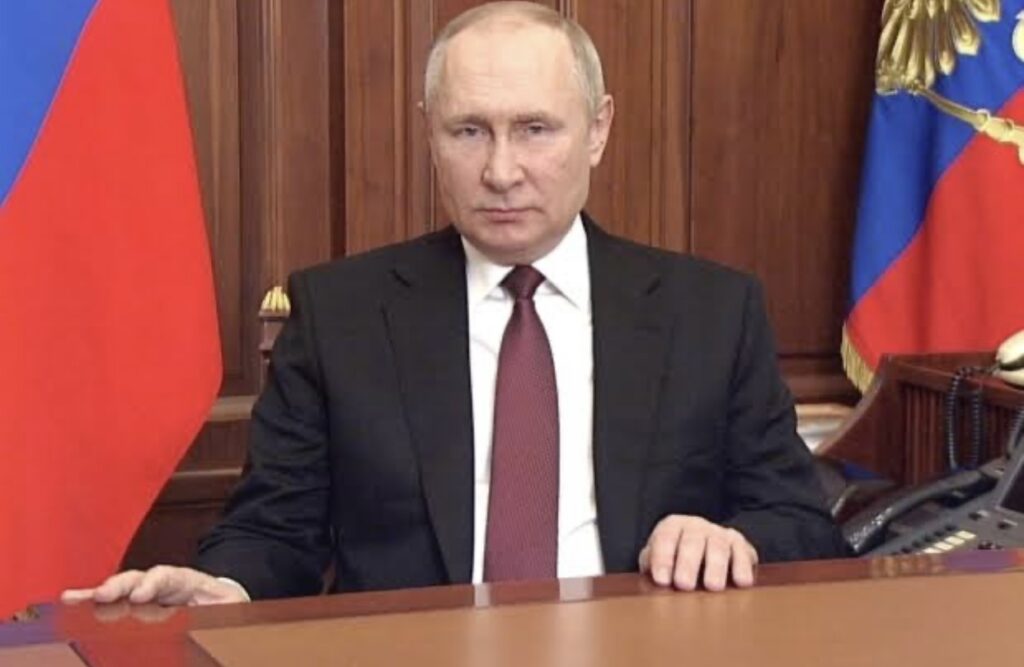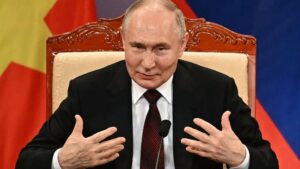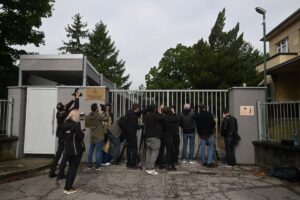President Vladimir Putin orders Wagner fighters to sign oath of allegiance after Prigozhin’s death. On Friday, Putin signed the decree for this change, which takes immediate effect, after the Kremlin dismissed Western claims that Prigozhin had been targeted by their orders as an “outright falsehood.” The Kremlin refrained from definitively confirming Prigozhin’s demise, citing the requirement for awaiting test outcomes.
Russia’s aviation authority stated that Prigozhin was aboard a private jet that crashed on Wednesday evening northwest of Moscow with no survivors, exactly two months after he led an unsuccessful rebellion against military leaders.
President Vladimir Putin expressed condolences to the crash victims’ families on Thursday and discussed Prigozhin in the past tense.
He referenced “preliminary information” that indicated Prigozhin and his senior associates from Wagner had all perished. While acknowledging Prigozhin’s merits, he also acknowledged his “serious errors.”
Putin’s imposition of a mandatory pledge for Wagner employees and other private military contractors tightens state control over them.
The decree, published on the Kremlin’s official website, compels individuals engaged in activities on behalf of the military or in support of what Moscow labels its “special military operation” in Ukraine to take a formal oath of loyalty to Russia.
Described in the decree as a step to establish the ethical and moral foundation of Russia’s defense, the oath’s wording includes a clause in which the takers pledge to unswervingly obey commanders and senior leaders.
Putin accused of ordering Prigozhin’s death
Western politicians and analysts have insinuated, albeit without providing evidence, that Putin ordered Prigozhin’s death to penalize him for instigating the June 23-34 uprising against the army’s leadership. This rebellion also represented the most substantial challenge to Putin’s reign since he assumed power in 1999.
Kremlin spokesperson Dmitry Peskov affirmed on Friday that this allegation and others like it are unfounded.
“There’s a lot of speculation about this plane crash and the tragic fatalities of the passengers, including Yevgeny Prigozhin. In the West, all of this speculation is presented from a well-known angle,” Peskov told reporters.
“All of this is entirely false, and when addressing this issue, it’s essential to rely on facts. There aren’t many facts available yet. “We need to establish them during investigative procedures,” he stated.
Awaiting Test Results
Russian investigators have initiated an inquiry into the incident, but haven’t disclosed their suspicions about the aircraft’s sudden descent.
Nor have they officially validated the identities of the 10 bodies retrieved from the wreckage.
When asked if the Kremlin had officially received news of Prigozhin’s death, Peskov said on Friday: “If you paid attention to the Russian president’s statement, he indicated that all necessary tests, including genetic ones, will be conducted. “We will publish the official findings as soon as we’re ready,” he said.
Peskov, stating Putin hadn’t recently met Prigozhin, also indicated uncertainty about the duration of the tests and investigative work. Consequently, it’s too early to discuss Putin’s potential attendance at Prigozhin’s funeral, according to Peskov’s response to a related query.
“There are no set dates for the funeral yet; it’s premature to address it. The only point I can make is that the president’s schedule is quite busy currently.”
Nigel Gould-Davies, a former British ambassador to Belarus now working as a senior fellow at the International Institute for Strategic Studies (IISS), remarked on the significance of the funeral.
“If Putin aims to underscore that Prigozhin died as a traitor, he might disregard it,” Gould-Davies noted.
“Prigozhin’s supporters might seize it as a chance to extol him and his critique of the Kremlin’s war conduct. This could amplify the animosity of a core group of Wagner loyalists toward the Kremlin,” he added.
On Friday, British military intelligence mentioned that definitive evidence of Prigozhin’s presence onboard had not yet surfaced, but it was “highly plausible” that he had died.
Meanwhile, the Pentagon stated its initial assessment was that Prigozhin had been killed.



